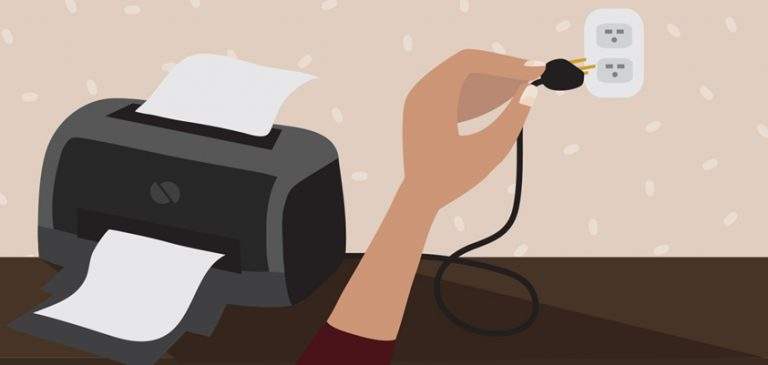
SaaS : Fastest-Growing Services In The Healthcare Industry
In the last few years, technological advancement has taken place in every field. Even the healthcare industry is actively adopting technology innovations to provide the patients with the best care and improve their internal procedures.
For any person or institution running healthcare, the cost of the operations is much costly. People who own and run a healthcare institution are the only ones; who are directly responsible for their patients’ and staff’s well-being. The hospital management needs to adopt all the possible means that they can; to ensure that the patient experiences at their hospital are superior and also the working of staff has a smooth workflow.
Hence, the hospitals are always looking for new methods that improve their operational efficiency without spending hefty amounts of money. For the healthcare institutes, the SaaS model thus turns out to be of great help to them as they also provide them the hospital database management system to have all the data stored in one place.
SaaS stands for Software As A Service. It can also be defined as software that is owned, delivered, and managed remotely by one or more providers. The vendor delivers its clients with a hospital software that is based on one set of common code and data definitions; that is consumed in a one-to-many model by all contracted customers and they have to pay-for-use basis or they can get as a subscription-based on use metrics.
In simple words, We can explain it as a subscription-based model of software that businesses use for licensing and delivery. In healthcare industries, SaaS can provide numerous benefits as the industries; can have multiple applications that make the work much easy.
Benefits of SaaS in the Healthcare Industry
There are various benefits that SaaS offers to healthcare industries. Some of them are:
Cost-Effective:
Traditional Healthcare technologies are a little bit expensive as the healthcare industry has to deal with sensitive information. So, any of the healthcare institutions cannot compromise on efficient features just for the sake of saving a little money so they can use any of the hospital management software. However, with the help of SaaS, healthcare institutes get an economical solution as they don’t have to bear any:
- Maintenance costs of the hospital software
- Set up investment as heavy hardware set up is not required
- Upgradation costs of the hospital management software
- Heavy initial investments
Security:
With the help of SaaS applications, all medical organizations can access multiple security features to secure patient data by using any of the hospital database management software. Also, for medical institutes, there are several compliances and standards like HIPAA, which has to be ensured by the healthcare industry to keep private health information and sensitive data safe.
Scalability:
SaaS applications for the healthcare industry are highly scalable as they are usually cloud-based. Hence, they don’t have to worry about scalability as they can quickly scale their applications up or down, which depends on their business’ growth.
Back-ups:
One of the most significant benefits of SaaS applications is that they give to any of the clients is its regular backups. With the help of on-site data servers, the medical institute is responsible for all backups and can be under the constant risk of losing all their sensitive data in case their servers crash. However, this will not happen with SaaS applications as all the software continuously backs up all data. So, in any of the cases or any problem, all medical data can be easily retrieved.
Real-Time Updates:
With the help of SaaS applications, healthcare institutes can ensure that they have accurate information about their patients or at all times, as it facilitates real-time updates. It means if there are different specialists involved in a patient’s case then they can collaborate on his records and share regular updates. Every specialist will have the latest updated information of the patient, which will further help both the patient and specialist.
Accessibility
With the help of SaaS applications, all the authorized users can access their information from anywhere and that too at any time. Accessibility is equally important as all the doctors can consult with each other regarding a patient’s case from their locations. With the help of the EHR software, patients and doctors can communicate easily without worrying about accessing the latest records.
Checklist for HIPAA Compliance
HIPAA compliance is one of the most crucial aspects of healthcare industries that use any electronic medium to exchange their patients’ private health care information that includes SaaS. However, most of the healthcare institutes often fail to comply with HIPAA, which leads them to hefty fines, and sometimes they get closed too.
Following are four points that a healthcare industry must keep in mind while ensuring HIPAA compliance for their SaaS platform:
Healthcare Industries should find All Applications That Contain Private Health Information.
Many healthcare organizations buy or implement new software in their organizations without consulting their IT department or any other healthcare consulting company. Health care industry is a very sensitive sector with confidential data and implementation of unauthorized IT applications will have negative impact on your business. Many healthcare departments use SaaS applications containing electronically protected health information (ePHI). The Healthcare industry should first find out all such applications used in their healthcare organization and ensure that they are HIPAA compliant.
The healthcare industry needs to ensure that any SaaS application used in their institute is HIPAA compliant to maintain patient data privacy and security.
It Review All Contracts
Many of the SaaS applications used by the healthcare industries today don’t fit to comply with the HIPPA standards. Hence the healthcare organizations before transferring their system entirely to the SaaS solutions should ensure that they go through all contracts properly to ensure HIPPA compliance.
The Healthcare industry should have signed the HIPPA-compliant Business Associate Agreement (BAA) or contract. The HIPPA BAA is mainly responsible for:
- Setting uses of electronically protected health information
- Setting disclosures of electronically protected health information
- Ensuring the security of all healthcare information of the patients
The Healthcare industry should also go through the breach notification obligations and emergency clauses; of the contracts so that the industry does not leave any loopholes unattended concerning HIPPA compliance.
It Sets Compliance Standards
It is crucial for the health care sector if they use any of the cloud-based healthcare apps they should set standards like:
- GDPR
- SNOMED CT
- DICOM, etc.
These standards that set are not exchangeable with HIPAA compliance. However, they help to:
- Eensure utmost security for the healthcare industry
- Ensure supreme privacy to the healthcare industry
- Design a better auditing schedule to comply with goals.
According to HIPAA compliance, all electronically protected health information of the patients or any other information related to the industry should be encrypted to NIST standards if stored in cloud-based or SaaS applications. However, encryption can sometimes prove to not have the following
- Keep your health care data secure with the best cybersecurity.
- keep it entirely confidential
There are many additional, country-specific compliance standards. By complying with their SaaS application with such standards according to their geographical area, they can ensure that their confidential patient data is entirely secure and private.
It Conducts Audits
Under the HIPAA compliance, audit controls for the healthcare industry are essential to:
- Record the usage of information of the medical institute
- Monitor access attempts and protects health information electronically
Many hospitals do not have a proper procedure to conduct regular audits at the organization which might have legal implications and the hospital has to pay heavy fines. So, they should perform risk analysis in the SaaS application concerning NIST guidelines to ensure that they can:
- Maintain cybersecurity protection
- Examine breaches
- Implement all security measures
The healthcare industry must outline all requirements while they move their procedures to a SaaS platform or application. The institute must ensure that they sign the right contracts and accurately follow all HIPAA guidelines and conduct regular audits to provide high-level data safety measures to their patients.
What are the upcoming trends in Healthcare SaaS?
Implementation of SaaS applications in the healthcare industry is with the fundamental aim to provide healthcare institutions with multiple ways to improve their operational efficiency and increase their productivity. In today’s world, SaaS has already become popular in the healthcare sector; and keeping in mind the numerous benefits that all the SaaS applications offer, this technology will probably dominate in the medical industry in the upcoming years. Concerning time and technological advancement, healthcare SaaS may also grow.
Some of the upcoming trends that we see in Healthcare SaaS are:
- Artificial Intelligence (AI)
- Vertical SaaS
- Pay-Per-Use Model
- Integration in Existing Systems
Conclusion
In the end, we can conclude that SaaS will soon be one of the most widely-used technologies in the healthcare sector. By getting in touch with the right SaaS application and software development companies, the healthcare industry can ensure that they develop a highly efficient and easy-to-use SaaS application.
















